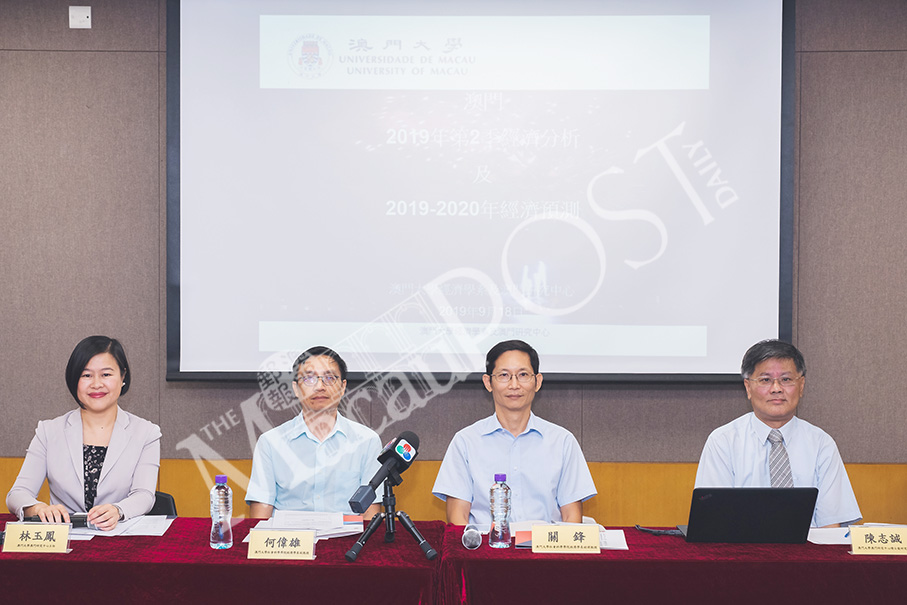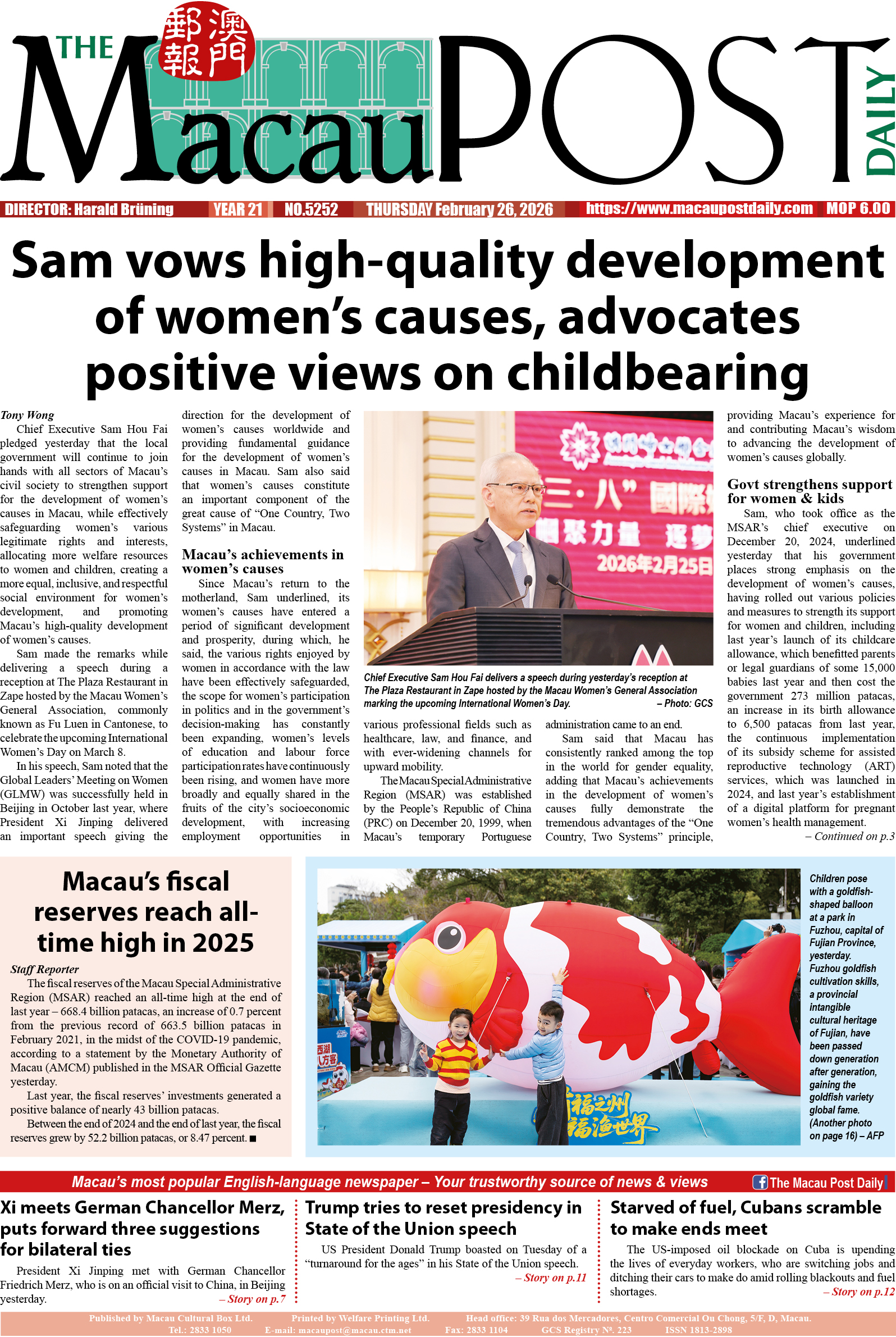The University of Macau (UM) forecast yesterday that Macau’s economy will shrink 0.8 percent this year and 0.9 percent next year.
The forecast was jointly announced by the public university’s Department of Economics and UM Centre for Macau Studies (CMS) during a press conference on the university’s Hengqin campus.
Yesterday’s press conference was co-hosted by Patrick Ho Wai Hong, associate professor of the Department of Economics, Kwan Fung, assistant professor of the Department of Economics, Agnes Lam Iok Fong, director of the Centre for Macau Studies, and Chan Chi Shing, post-doctoral research fellow of the Centre for Macau Studies.
The annual Macau economic growth forecast by the university is based on the Macroeconometric Structural Model of Macau which was developed by economists at the UM Department of Economics.
The Macroeconometric Structural Model of Macau is a quarterly simultaneous-equations econometric model which currently covers seven segments of the Macau economy – consumption, investment, external sector, prices, government, the labour market, and the monetary sector, the Department of Economics says on its website. Time series data used start from the first quarter of 1998 and are updated once new data are available. Its results provide the community with a “timely” understanding of the state of Macau’s economy and can help decision-makers to make “prudent” choices for the future, the department says.
According to yesterday’s press conference, Macau’s gross domestic product (GDP) is expected to shrink 0.8 percent in real terms this year, ranging from a pessimistic rate of negative growth of 4.1 percent to an optimistic rate of positive growth of 2.5 percent.
For next year, the city’s GDP in real terms is expected to shrink 0.9 percent, ranging from a pessimistic rate of negative growth of 10.6 percent to an optimistic rate of positive growth of 8.8 percent, according to the press conference.
According to the Statistics and Census Bureau (DSEC), Macau’s GDP shrank 3.2 percent year-on-year in real terms in the first quarter of this year, while the city’s economy recorded real negative growth of 1.8 percent in the second quarter.
If the China-US trade negotiations end with a favourable outcome and mainland China’s economic growth stabilises, Macau’s economic growth is expected to be more optimistic, according to the quartet at the press conference.
However, if the Sino-US trade negotiations break down and the Chinese mainland’s economic growth continues to slow down, Macau’s economic growth prospects become more pessimistic, according to the press conference.
For the city’s domestic demand, if investment continues to shrink, the possible modest growth of private and government consumption expenditures may not be enough to turn the local economy around, according to the press conference.

University of Macau (UM) Department of Economics Associate Professor Patrick Ho Wai Hong (second from left), Assistant Professor Kwan Fung (second from right), UM Centre for Macau Studies (CMS) Director Agnes Lam Iok Fong (first from left), and CMS Post-doctoral Research Fellow Chan Chi Shing address yesterday’s press conference on the university’s Hengqin campus about the team’s 2019-2020 forecast for Macau’s economic growth. Photo: UM









